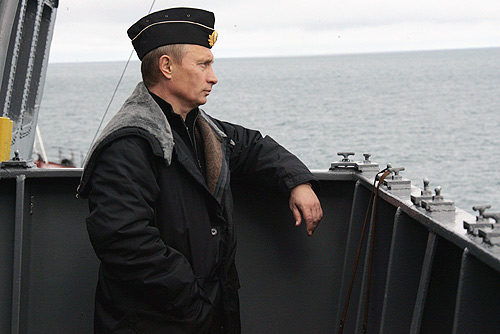
Few people think that the upcoming Russian presidential election will result in anything other than Vladimir Putin’s restoration to the Kremlin. No credible opposition figure exists – or can be allowed to exist given the logic of the Russian system. Putin may not get the 51per cent required for a first round win, but victory in the second seems assured, even if it requires the rule fudging that will happen anyway.
Kvetching, complaining, and protesting about the electoral result and how it happened will follow from Westerners and voters alike. What outsiders say will resonate in the West, but not so much in Russia. Sustained public objections at home, however, will likely weaken Putin Redux, but also catalyse domestic policy changes. Less likely is a return to the somewhat reformist Putin of the early years, though this cannot be excluded: an optimist would read Medvedev’s promise of democratic reforms to come in this light. More likely, Putin as president will revive policies that worked for him the past: reducing the public space for opposition to his policies and introducing pro-competition business schemes that stimulate growth and create opportunities for initiative – in the more acceptable, non-political realm. If the government can in fact get economic juices flowing, such a pragmatic strategy may well succeed.
Events will affect this modest agenda. Terrorism is one bogeyman. If something like the 1999 Moscow apartment bombings (a series of terrorist attacks that hit apartment complexes killing 293 people in September 1999 – editor’s note) happens again, will Putin use it to scare Russians into acquiescing to serious curbs on post-Soviet democracy? Falling oil and gas prices, provoked by an international crisis, could affect a range of calculations. A large-scale, Chernobyl-style disaster could further shake Russians’ confidence and add to the new president’s problems.
What will be Putin’s response? This is difficult to predict, but as president Putin will have a tool for crisis response that he has lacked for the past four years: the ability to fire the prime minister, as he did three times before taking the job himself in 2008 to cool off from term limits. Expect him to use it.
On the foreign front, one can speculate that a weakened Putin, seeking to push the country’s reliable nationalist buttons, will lash out at the familiar Kremlin whipping-boy, Georgia, or, less likely, really turn up the dial of anti-Americanism. The new US ambassador in Moscow has been the target of the latter in his opening weeks. Putin may go down such paths, but the core of his approach in international affairs will likely be more pragmatic.
Any serious new confrontation with the West would risk compromising whatever chances the buy-them-off domestic strategy has of succeeding. Instead, Putin will place more emphasis on things like preserving energy market share in Europe, strengthening the customs union/Eurasian Union, and working through the practicalities associated with WTO accession – a potential twofer in that Putin can, with luck, promote much-needed economic opportunity and engage in nationalist-baiting foreigner bashing at the same time.
Washington will have little choice but to try to continue the reset. How long President Obama can sustain this will depend on the extent of Russia’s cooperation on Afghanistan, Iran, and other big ticket items and how ugly Russia’s domestic scene and regional behaviour become. The most likely future is one of increasingly modest results from the reset driven by less (but not zero) cooperation on Putin’s part and more obstreperous limitations on the Obama administration’s room for manoeuver imposed by Congress or public opinion.
Matters will come to a head in May when Russia’s president should visit the United States for the Group of Eight and NATO summits that take place in Chicago. The simultaneous US election campaign will heighten the drama. Calls will resurface for Russia’s expulsion from the G8 club of democracies or for terminating the NATO-Russia Council that many believe has produced meagre results or worse.
Some will say that Obama should reset the reset. Such approaches would be a mistake. Washington will have to continue to deal as constructively as it can with Russia warts and all – even if it now has a few more warts and other ailments.
Ross Wilson is director of the Dinu Patriciu Eurasia Center at the Atlantic Council and former United States ambassador to Turkey (2005-08) and Azerbaijan (2000-03). This piece was originally featured on New Eastern Europe. Photo credit: Kremlin.ru.
Image: img92554.jpg
